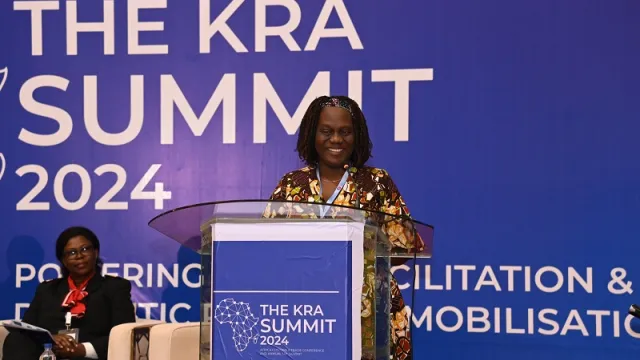KRA told to tap power of tech to enhance collections

KRA told to tap power of tech to enhance collections
The taxman has been tipped to harness the power of technology and alliances in the industry to drive up revenue collections. Speaking during the launch of the Kenya Revenue Authority (KRA) summit 2024, Prime Cabinet Secretary Musalia Mudavadi called on tax administrations to harness the power of rapid technological advancements driving the global economy.
Mr Mudavadi highlighted the need for tax authorities to adopt technology-driven solutions that facilitate trade and enhance domestic resource mobilization while urging for a re-evaluation of traditional tax frameworks to implement global solutions that ensure equitable contributions from all sectors to the national tax base.
“Innovation ranging from digital taxation platforms that simplify compliance to blockchain technologies that enhance trade transparency, provides vital tools for revenue generation and efficient trade management. Additionally, electronic invoicing systems can integrate the informal economy into the formal tax base, widening the scope for domestic resource mobilization,” said Mudavadi.
He also highlighted the importance of investing in capacity building and technical skills training for public servants to fully leverage these technologies and maximize benefits.
“Data analytics, artificial intelligence, and machine learning enable tax authorities to identify trends, improve compliance and risk profiling, and forecast revenue with greater accuracy,” he added.
Also present at the event was the National Treasury and Economic Planning CS, John Mbadi, who noted that embracing technology is essential for addressing modern challenges faced by tax administrations. The CS said that innovation can enhance the efficiency and effectiveness of revenue collection.
Read also: KRA cleared to collect tax under Finance Act 2023
Revenue collection
CS Mbadi pointed out that, despite ongoing efforts to improve revenue collection, issues such as tax malpractices hinder the country’s ability to secure necessary financial resources for structural transformation and sustainable growth.
“Illicit financial flows, including money laundering, tax evasion, and corruption, pose significant challenges, particularly in developing countries,” said the CS.
He further urged tax experts to prioritize the development of international policies that empower tax administrations to combat these issues and effectively leverage international tax frameworks.
On his part, KRA Commissioner-General Humphrey Wattanga noted that KRA is exploring the use of Internet of Things (IoT), Big Data, AI, and Blockchain to enhance its role in international trade and streamline tax processes.
“KRA recognizes the transformative power of technology in taxpayer services and operational efficiency. Our ongoing policy reforms and modernization efforts include implementing Application Programming Interfaces (APIs), AI, and Machine Learning, which will be pivotal for enhancing revenue mobilization through improved efficiency and compliance. APIs will facilitate seamless data exchange between KRA and taxpayers, streamlining tax filing and payment processes,” said the Commissioner-General.
Wattanga noted that the integration of APIs, AI, and Machine Learning will not only boost tax collection but also foster trust and transparency within the tax system. He urged tax administrations to adopt a collaborative approach to enhance their capacity to detect, deter, and address tax evasion while fostering accountability in the global financial system.
KRA Summit, which will close on Wednesday is part of the taxman’s stakeholder engagement initiatives. It offers a platform for the authority to collaborate with continental and global partners to develop practical solutions to various economic and tax challenges. The conference unites key actors and stakeholders from around the world in the field of taxation.



